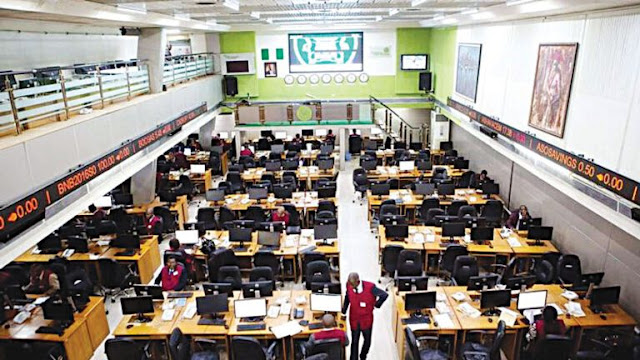In a significant development for Nigeria’s capital market, the Nigerian Exchange Limited (NGX) has lifted the suspension on trading in the shares of Universal Insurance Plc, enabling investors to resume transactions in the company’s stock. The announcement, detailed in the NGX’s latest weekly bulletin, marks a pivotal moment for Universal Insurance and its shareholders, who can now actively participate in trading on the NGX platform. The decision follows the company’s compliance with regulatory filing requirements, resolving a temporary suspension that was imposed due to its failure to meet deadlines for submitting financial statements. This move underscores the NGX’s commitment to enforcing regulatory standards while fostering a transparent and vibrant capital market that supports investor confidence and economic growth.
The lifting of the suspension, effective Wednesday, September 3, 2025, is a testament to the NGX’s robust regulatory framework and its role in ensuring accountability among listed companies. It also highlights Universal Insurance’s efforts to rectify its compliance shortcomings, signaling a positive step toward restoring trust among investors and stakeholders. As Nigeria continues to navigate economic challenges and seeks to strengthen its financial markets, this development offers insights into the interplay between corporate governance, regulatory oversight, and market dynamics.
Background: The Nigerian Exchange Limited and Its Regulatory Role
The Nigerian Exchange Limited (NGX) is the primary stock exchange in Nigeria, serving as a critical platform for capital formation, wealth creation, and economic development. Established as the Lagos Stock Exchange in 1960 and rebranded as the NGX in 2021, the exchange facilitates the trading of equities, bonds, exchange-traded funds (ETFs), and other financial instruments. With over 160 listed companies and a market capitalization exceeding ₦50 trillion as of 2025, the NGX plays a pivotal role in Nigeria’s economy, providing businesses with access to capital and investors with opportunities to grow their wealth.
The NGX operates under a stringent regulatory framework designed to ensure transparency, accountability, and investor protection. Listed companies are required to adhere to a set of rules and standards, including timely submission of financial statements, compliance with corporate governance codes, and adherence to disclosure requirements. These regulations are critical to maintaining investor confidence, as they provide stakeholders with accurate and timely information to make informed investment decisions.
One of the key mechanisms for enforcing compliance is the NGX’s Default Filing Rules, which mandate that listed companies submit their audited financial statements and quarterly reports within specified timelines. Failure to comply triggers a series of actions, including notifications, cure periods, and, in some cases, suspension of trading in the company’s securities. This framework ensures that companies maintain transparency and accountability, which are essential for a well-functioning capital market.
Universal Insurance Plc, a prominent player in Nigeria’s insurance sector, became subject to these rules when it failed to submit its financial statements on time, leading to a temporary suspension of trading in its shares. The recent lifting of this suspension reflects the company’s efforts to address its compliance issues and the NGX’s commitment to balancing enforcement with opportunities for companies to rectify their shortcomings.
Details of the Suspension and Its Resolution
The suspension of trading in Universal Insurance Plc’s shares was announced by the NGX on September 1, 2025, through a notice with Reference Number: NGXREG/IRD/MB64/25/09/01. The action was taken due to the company’s failure to submit its Audited Financial Statements for the year ended December 31, 2024, and outstanding unaudited results for 2025 within the stipulated deadlines. According to the NGX’s Default Filing Rules, listed companies are required to submit their financial accounts promptly, with a cure period provided to address any delays. If a company fails to comply by the end of the cure period, the NGX issues a Second Filing Deficiency Notification, suspends trading in the company’s securities, and notifies the Securities and Exchange Commission (SEC) and the public within 24 hours.
The suspension of Universal Insurance’s shares was a standard enforcement action aimed at protecting investors and ensuring market integrity. By halting trading, the NGX sought to prevent investors from making decisions based on incomplete or outdated financial information, which could expose them to undue risks. The suspension also served as a signal to other listed companies about the importance of adhering to regulatory requirements.
Universal Insurance responded to the suspension by taking swift action to address its compliance issues. The company submitted its Audited Financial Statements for 2024 and the outstanding unaudited results for 2025, satisfying the NGX’s listing requirements. The exchange conducted a thorough review of the submitted documents to ensure they met all relevant regulatory standards, as stipulated under Rule 3.3 of the Default Filing Rules. This rule mandates that the suspension of trading be lifted once the outstanding accounts are received and deemed satisfactory, with the decision communicated through the same public channels used to announce the suspension.
In its weekly bulletin, the NGX confirmed that Universal Insurance had met the necessary requirements, leading to the lifting of the trading suspension on September 3, 2025. “Trading Licence Holders and the investing public are hereby notified that the suspension placed on trading on the shares of Universal Insurance Plc was lifted today, Wednesday, 3 September 2025,” the statement read. This development has restored the ability of shareholders and market participants to trade Universal Insurance’s shares on the NGX platform, signaling a return to normalcy for the company’s stock.
The Significance of the Lifting of the Suspension
The lifting of the trading suspension on Universal Insurance’s shares has significant implications for the company, its investors, and Nigeria’s broader capital market. Below are some key areas where this development is expected to make an impact:
Restoring Investor Confidence: The suspension of trading, while necessary, can erode investor confidence and negatively affect a company’s share price and market perception. By resolving its compliance issues and resuming trading, Universal Insurance has demonstrated its commitment to transparency and accountability, which is likely to reassure investors and stabilize its stock performance.
Strengthening Market Integrity: The NGX’s enforcement of its Default Filing Rules and subsequent lifting of the suspension highlight the exchange’s role in maintaining a transparent and well-regulated market. This balance of enforcement and flexibility fosters trust among investors and reinforces the NGX’s reputation as a credible platform for capital market activities.
Supporting the Insurance Sector: Nigeria’s insurance sector is a critical component of the financial services industry, contributing to economic stability by providing risk management solutions. Universal Insurance, as a key player, plays a vital role in this ecosystem. The resumption of trading in its shares ensures that the company can continue to access capital and support its growth objectives, benefiting the broader sector.
Encouraging Corporate Compliance: The case of Universal Insurance serves as a reminder to other listed companies of the importance of adhering to regulatory deadlines. The NGX’s actions demonstrate that non-compliance has consequences, but companies that take corrective measures can regain their standing in the market.
Boosting Economic Activity: The resumption of trading in Universal Insurance’s shares contributes to the liquidity and vibrancy of the NGX, enabling investors to buy and sell shares, generate returns, and support economic activity. This is particularly important in the context of Nigeria’s economic challenges, including inflation and currency depreciation.
Challenges and Considerations
While the lifting of the suspension is a positive development, it also brings to light several challenges and considerations that Universal Insurance, the NGX, and other stakeholders must address to ensure sustained progress:
Ensuring Ongoing Compliance: Universal Insurance must establish robust internal processes to prevent future delays in financial reporting. This may involve strengthening its corporate governance framework, investing in financial management systems, and enhancing communication with regulators.
Investor Communication: The suspension may have caused uncertainty among shareholders, some of whom may have been unaware of the reasons behind it. Universal Insurance must engage proactively with investors to explain the circumstances and outline measures to prevent recurrence, thereby rebuilding trust.
Market Volatility: The resumption of trading could lead to short-term volatility in Universal Insurance’s share price as investors react to the news. The company and the NGX should monitor market activity closely to address any undue fluctuations and ensure stability.
Regulatory Oversight: The NGX and the SEC must continue to enforce compliance standards consistently across all listed companies to maintain market integrity. This includes providing support to companies facing challenges in meeting deadlines, such as capacity-building programs for smaller firms.
Broader Economic Context: Nigeria’s capital market operates in a challenging economic environment, with inflation rates exceeding 33% in 2025 and ongoing foreign exchange constraints. These factors can affect investor sentiment and the performance of listed companies like Universal Insurance. The NGX and policymakers must work to create a stable macroeconomic environment to support market growth.
To address these challenges, Universal Insurance could invest in technology-driven solutions to streamline its financial reporting processes and enhance transparency. The NGX, on the other hand, could explore initiatives to support listed companies, such as workshops on regulatory compliance or partnerships with accounting firms to assist smaller firms. Additionally, the SEC could play a role in harmonizing regulations across sectors to ensure consistency and fairness.
Stakeholder Reactions and Public Sentiment
The lifting of the suspension has elicited a range of reactions from stakeholders, including investors, market analysts, and industry experts. The Association of Stockbroking Houses of Nigeria (ASHON) welcomed the development, noting that it demonstrates the NGX’s commitment to maintaining a fair and transparent market. “The swift resolution of this issue shows that the NGX is serious about enforcing rules while giving companies the opportunity to rectify their shortcomings,” said Mr. Sam Onukwue, ASHON’s Chairman.
Investors, particularly shareholders of Universal Insurance, have expressed relief at the resumption of trading. “I was worried when the suspension was announced, but I’m glad the company has sorted things out,” said Mrs. Aisha Mohammed, a retail investor in Lagos. “I hope Universal Insurance takes steps to avoid this in the future.” Other investors have called for greater transparency from the company regarding its financial performance and strategic plans.
Market analysts have noted that the lifting of the suspension could have a positive impact on Universal Insurance’s share price, provided the company communicates effectively with the market. “This is an opportunity for Universal Insurance to rebuild investor confidence,” said Dr. Biodun Adedipe, a financial analyst. “The company should leverage this moment to share its growth strategy and demonstrate its commitment to good governance.”
The broader public has also taken note of the development, with many seeing it as a positive signal for Nigeria’s capital market. “When companies comply with regulations and the NGX enforces its rules, it creates a sense of trust in the market,” said Mr. Chinedu Okeke, a business owner in Abuja. “This is good for all of us who invest in Nigerian companies.”
Broader Implications for Nigeria’s Capital Market
The lifting of the suspension on Universal Insurance’s shares has broader implications for Nigeria’s capital market and its role in the country’s economic development. The NGX’s ability to enforce compliance while providing a pathway for companies to rectify issues demonstrates the maturity of Nigeria’s capital market infrastructure. This balance is critical to attracting both domestic and foreign investors, who seek stability and transparency in their investment decisions.
The development also underscores the importance of the insurance sector in Nigeria’s financial ecosystem. With the sector undergoing significant reforms, including the implementation of the Insurance Industry Roadmap by the National Insurance Commission (NAICOM), companies like Universal Insurance have an opportunity to play a leading role in driving growth and innovation. The resumption of trading ensures that Universal Insurance can continue to access capital to fund its operations and contribute to the sector’s development.
Moreover, the case of Universal Insurance highlights the interconnectedness of corporate governance, regulatory oversight, and investor confidence. As Nigeria seeks to deepen its capital market and attract more listings, the NGX’s enforcement of rules like the Default Filing Rules will be critical to maintaining market integrity. This, in turn, supports the government’s broader economic diversification agenda, which aims to reduce reliance on oil and promote growth in sectors like insurance, manufacturing, and technology.
Looking Ahead: Building a Resilient Capital Market
The lifting of the trading suspension on Universal Insurance Plc’s shares is a positive development that reinforces the NGX’s role as a guardian of Nigeria’s capital market. By enforcing compliance while allowing companies to address their shortcomings, the exchange is fostering a culture of accountability and transparency that benefits all stakeholders. For Universal Insurance, this marks an opportunity to rebuild trust, strengthen its market position, and contribute to the growth of Nigeria’s insurance sector.
Moving forward, several steps can ensure the sustained success of this development:
Strengthening Corporate Governance: Universal Insurance should prioritize robust governance practices to prevent future compliance issues, including regular audits and transparent communication with stakeholders.
Enhancing Investor Engagement: The company should proactively engage with shareholders through regular updates, investor briefings, and clear communication of its financial performance and strategic goals.
Supporting Market Development: The NGX should continue to invest in initiatives that support listed companies, such as training programs on compliance and governance, to reduce the likelihood of suspensions.
Promoting Investor Education: Educating retail investors about the importance of financial reporting and regulatory compliance can enhance their confidence in the market and encourage greater participation.
Fostering Economic Stability: Policymakers should work to address macroeconomic challenges, such as inflation and currency volatility, to create a conducive environment for capital market growth.
In conclusion, the NGX’s decision to lift the suspension on Universal Insurance’s shares is a milestone that reflects the strength and resilience of Nigeria’s capital market. By resolving its compliance issues, Universal Insurance has regained its place in the market, while the NGX has demonstrated its commitment to upholding regulatory standards. As Nigeria continues its journey toward economic diversification and financial inclusion, initiatives like this will play a critical role in building a vibrant and trusted capital market that supports sustainable growth.






